I don't feel like a hero, I feel like a "non-deserter". Like when one is called to arms. I know that the job I have chosen carries risks, today determined by COVID, in the past by any other infectious disease. I feel like someone who has been called to the front line and said "I'm ready".
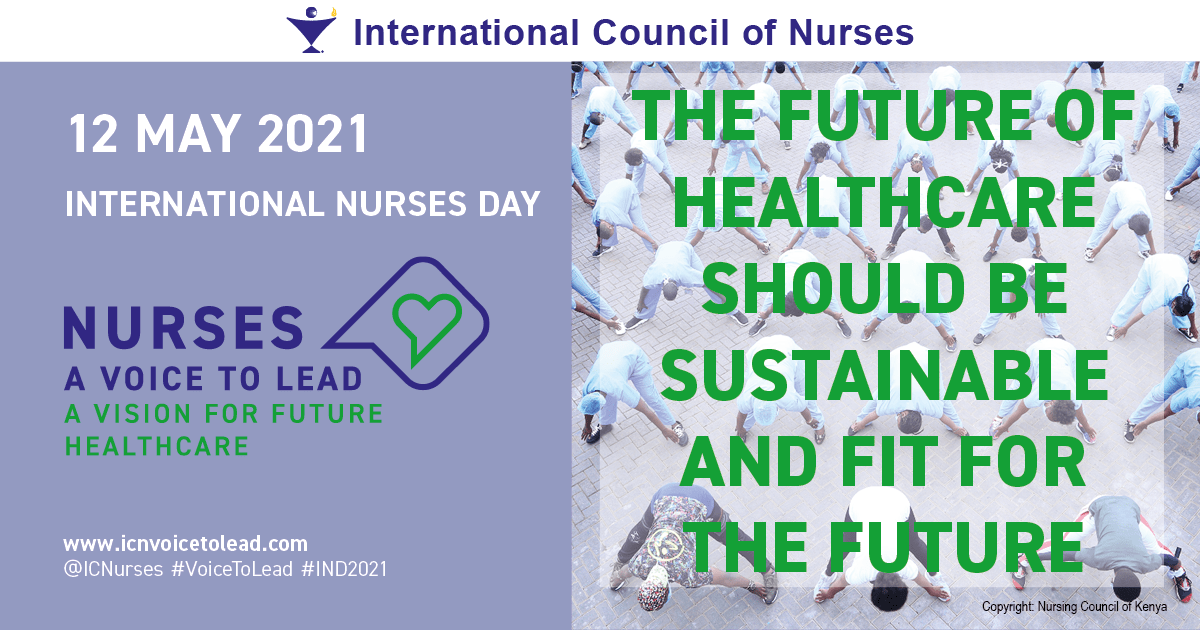
On 12 May 1820 Florence Nightingale, the founder of modern nursing, was born. The International Council of Nurses commemorates this date by celebrating International Nurses Day all over the world.
The International Council of Nurses commemorates this date by celebrating International Nurses Day all over the world, thus providing an opportunity for the nursing profession to "talk about itself" with hospital patients, community service users, the elderly, other health care professionals, young people who have to choose a job, and all those who have met or will meet "a nurse" in the course of their lives.
The pandemic emergency and the nurse
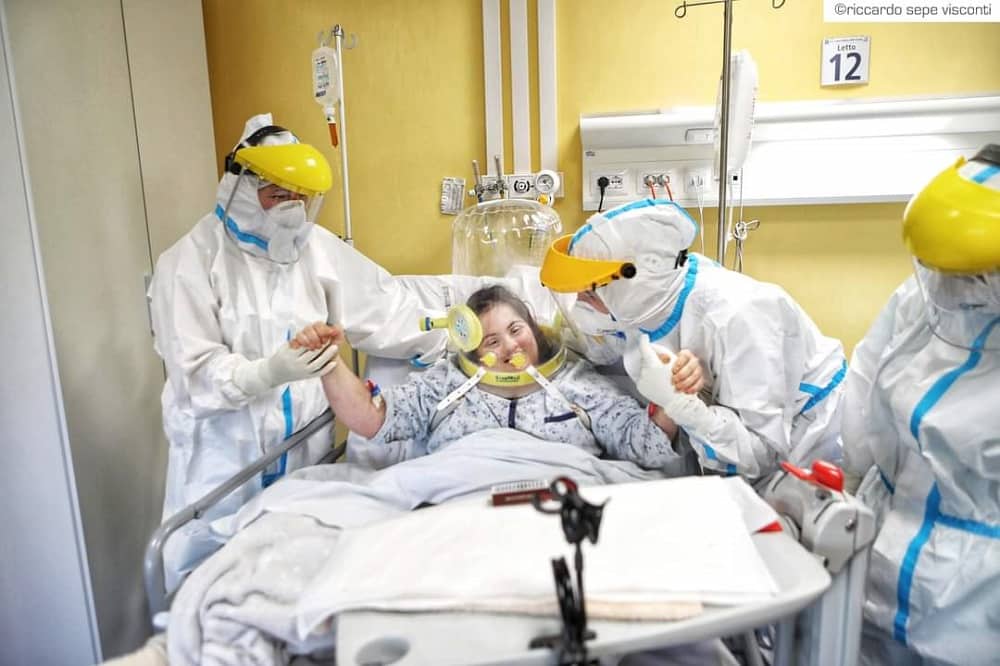
In this historic time of great change in the lifestyle and quality of life of the world's population, due to the spread of Covid-19, the role of the professionals involved in the care and treatment of patients affected by this virus is important.
The pandemic emergency has highlighted, all over the world, the essentiality of care and has recognized, never before as in the past, an essential and specific role for these professionals in all contexts.
Nurses have been crucial both in the hospital and in the community. Together, with the doctors and other professionals on the front line in the fight against the pandemic, the nurses have shown courage and dedication to their profession, which they have experienced almost as a mission in the service of people's health.
They never gave up, no one backed down, even in the most difficult moments, even when the marks of the masks worn for many hours were evident, and even when many of them lost their lives because of the virus they were fighting.
Some experiences: Antonella Del Giacomo, nurse by the INT Fondazione Pascale di Napoli
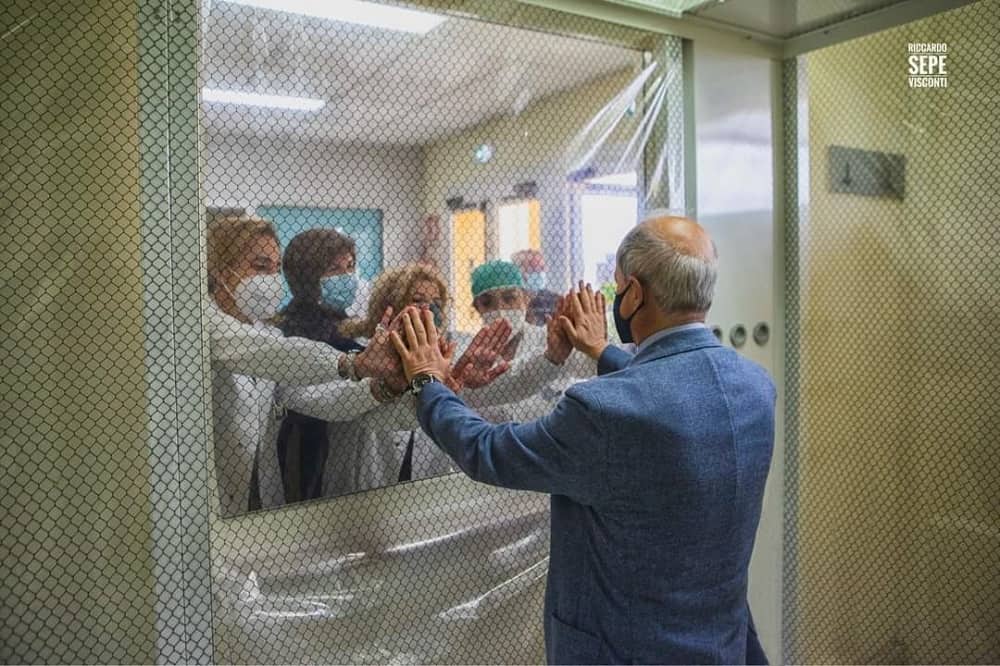
Antonella Del Giacomo, a young nurse who was working at the "Santa Maria of Misericordia" Hospital in Urbino when the emergency broke out, was a witness to what happened, and unfortunately is still happening in Italy's hospitals, tell us: "I will never forget the beginning of this pandemic. I'll never forget the dull, frightened looks on my colleagues and my faces in the first days when hell seemed to be descending. Our eyes silently screamed more than a thousand words. We were not ready! I was not ready to see so much suffering. I have always had the grace (not luck) to carry out my work accompanied by my deep faith, but in those days even this was not enough for me to give an explanation and a meaning to all that pain. To be honest, many questions remain unanswered today”.
"The early days”. She tells us: "We performed every movement maniacally. Wearing that astronaut suit was a nightmare and taking it off was even worse. Doubts sometimes took over. What if I make a mistake? What if I get infected? What if... I'd immediately regain lucidity because all those if were a luxury I couldn't afford. I have seen people starved for air, I have seen people die alone, but I have also seen people return home on their own two feet. The first ones discharged seemed like a miracle".
The Covid emergency also called for rapid changes in the organization of the patient management system and the performance of tasks, in addition to the strain of working head-to-toe in PPE (Personal Protective Equipment), which has to be changed often and makes breathing difficult.
The nurses and all other professionals have taken up the challenge, which is still ongoing, and are completing it. In addition to the technical aspect, the nurses took on the psychological and emotional suffering of patients who, isolated in the Covid-19 wards of hospitals, or under home supervision, they were unable to have contact with their loved ones.
Throughout the emergency, they remained at the side of frightened patients, far from their loved ones, even if only with a glance of hope and empathy above the masks, knowing how to reconcile professionalism and humanity of care.
In addition, during these months, it has been and still is important for the synergy between all the staff who have faced this difficult ordeal.
"The greatest strength in those difficult moments was my colleagues." Antonella affirms: "Doctors and nurses were one team fighting for a common good: life."
The phrase "Unity is strength" is therefore not trivial, as strong professional integration is the key to overcoming the crisis and protecting the health of citizens.
With the affection and determination that distinguish being Italian, we must continue to support the enormous work that doctors, nurses, and other operators are doing, so that everything returns to normal so that the embrace replaces the greeting with clenched fists so that we return to celebrate together and to travel freely in our beloved Italy.
The experience of Arcangelo Russo and Paola Poli, nurses at the Rizzoli Hospital in Ischia
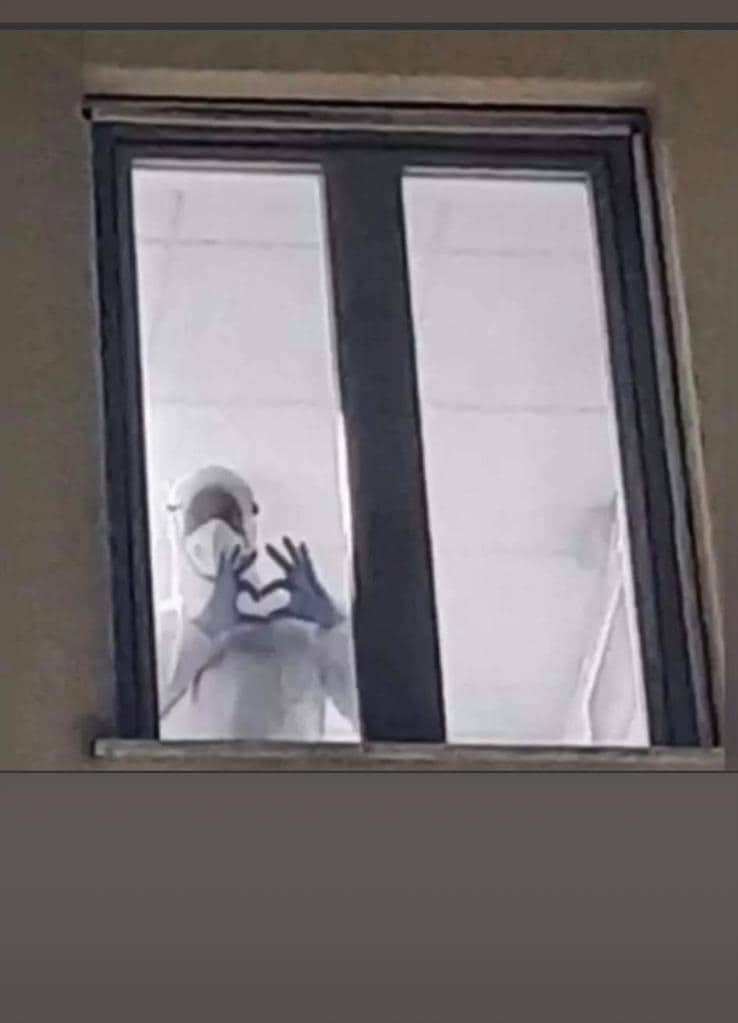
We interviewed also Paola Poli, a nurse from the Rizzoli Hospital in Ischia.
- How did you feel when the epidemic started?
When the pandemic started, I felt scared and a great sense of impotence. I realised that we had a long and difficult journey ahead of us and had to have a lot of strength and resilience.
- How do you feel today?
Today I feel tired, with less fear because we have more knowledge than a year ago and more hope since there has been the possibility of vaccination. But we have to keep our guard up until we all slowly come out of this. It still takes time.
How has the Italian character of the nurses made a difference?
I believe that nurses in Italy are prepared, but not always, and not all are valued. The spirit of self-denial made it possible for us to face the pandemic in the best possible way, but we need better management of personnel resources. Health is essential, and it is a right. You cannot always rely on the good sense of the nursing profession. It is indeed a job, but it requires significant human resources. Those who work in health care work constantly in suffering. Let's not forget that. It is necessary to have the time and the possibility of recovering physical but above all mental energies. Italy boasts of a great nursing class.
For Arcangelo Russo, a nurse in charge of health management at the Rizzoli Hospital in Ischia, we have dedicated further questions.
- Do you consider your job a mission?
This job is a mission to the extent that you want it to be. In reality, I do not perceive my work as such, it is a profession, which can be seen as a mission, but it is not. It is a profession, which can be seen as a mission, but it is not. Like all other professions, it depends on how you devote yourself to it.
- When did the presence of the virus on our island become unequivocal?
We can define ourselves as precursors: on 2 March 2020, a tourist from Brescia was identified as being positive, and we managed to transfer him with a biocontainment stretcher, followed by the rest of the holiday group with a Red Cross vehicle. Probably the moment we realised there was a problem on the island was when the case of the islander Claudio Picconi came up. In those difficult circumstances, with the patient in intensive care, it was essential to understand how to rescue him in the most efficient way, even if the doctors felt unprepared.
Now this nightmare is almost over as Ischia is about to complete mass vaccination and will very soon be among the first covid free destinations in Italy along with Capri and Procida.
Italian nurses truly put heart and dedication into every action they took every day and every hour of their profession during the pandemic period, and they continue to do so whether the enemy is called COVID-19 or something else.
The face of those who take care of us: a project by Riccardo Sepe Visconti
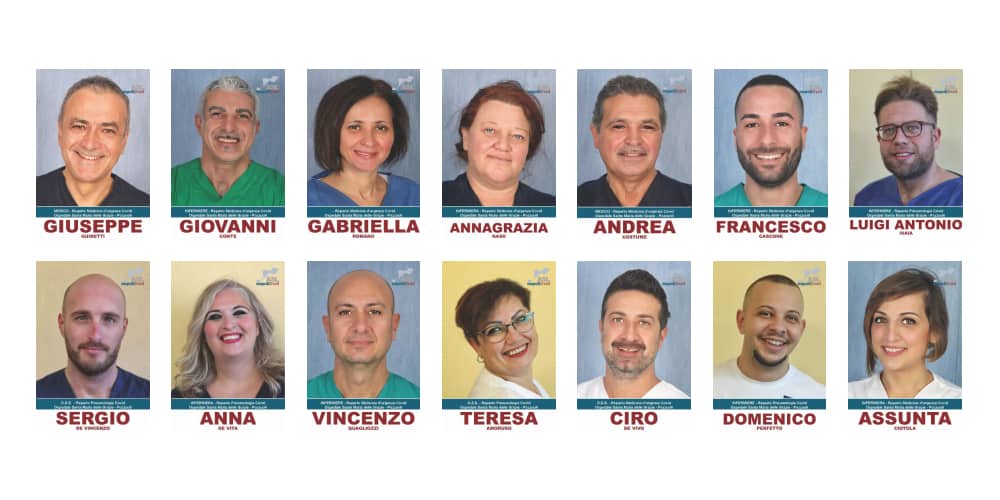
Being blindfolded and without identity reinforced the feeling of loneliness in patients, so the journalist Riccardo Sepe Visconti - with the support of the Asl Napoli 2 Nord - devised the project entitled 'The face of those who care for us'.
Visconti explained the project as follows: 'I have portrayed the faces of all those who - forced to wear shielding devices to protect themselves against the virus - remain hidden under the protective layers of overalls, masks, helmets and gloves and, therefore, cannot show their identity to the patients they look after every day. Often, the protective barriers are such that it is not even possible to tell whether one is a man or a woman. For patients who have to spend long periods of time in hospital, even in isolation, not being able to recognise the people with whom they come into close contact on a daily basis leads to a degree of disorientation. Hence the idea of making badges - with the face of the health worker - which, inside the covid areas, staff will wear on their overalls to make themselves recognisable, and thus put back in place one of the pieces - recognisability - that the damned pandemic has violently damaged in this sort of fragile and unbalanced puzzle that is the life of each of us".
This is how the 'badge' project was born, to immediately recognise the nurses, call them by their names and remember them for having been treated by them at such a difficult time.
We thank Cecilia D'Ambrosio and Riccardo Sepe Visconti for their photographic contribution. We recommend visiting their page to view their brilliant ICity Special Health project.
About the author
Written on 11/05/2021


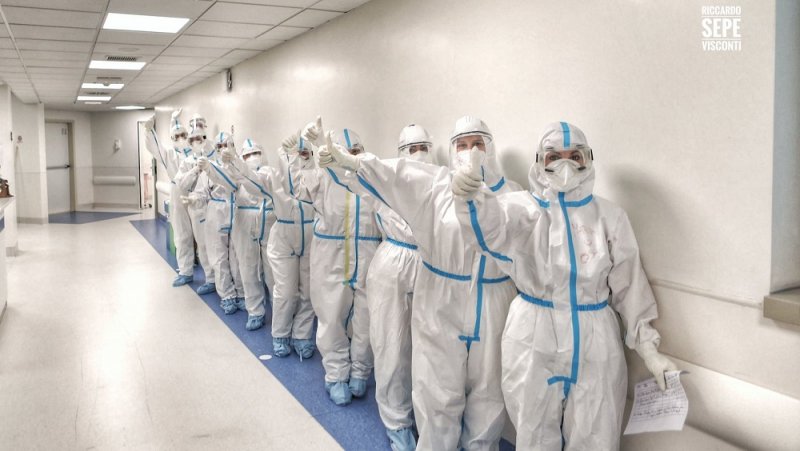
Marialuisa Monfreda
The 12th of May is International Nurses Day and Visit Italy wants to remember the enormous work that all Italian health workers have done and still do because of the Covid 19 emergency. Italian Nurses made and make also today their profession an instrument of closeness to the patient.